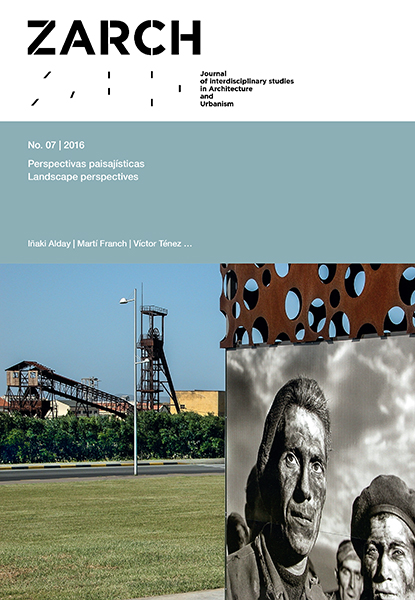Mediterranean Saltscapes: The need to enhance fragile ecological and cultural resources in Portugal
DOI:
https://doi.org/10.26754/ojs_zarch/zarch.201671519Resumen
Los paisajes de la sal son lugares singulares con una urgente necesidad de una política pública integrada y de atención académica. Los paisajes de la sal mediterráneos son lugares de producción antiguos ubicados principalmente en los estuarios y en la proximidad de las ciudades. Su frágil naturaleza, su transformación ecológica y cultural, principalmente como consecuencia de los procesos de reestructuración global, han llevado a la implementación de medidas específicas orientadas a la preservación y salvaguardia de las salinas como depósitos de paradigmas artesanales, ecológicos y socioeconómicos. Examino estudios previos sobre el tema e intento de ilustrar el valor ecológico de salinas, la preeminencia cultural y el potencial turístico con ejemplos de Portugal, donde las condiciones climáticas durante el verano son bastante favorables a la cosecha de sal a través de la evaporación. Sostengo que muchas de estas salinas solares han sido amenazadas por transformaciones económicas globales, cambios en patrones de empleo, tecnologías laboriosas, estilos de vida y la invasión de la urbanización, potencialmente conduciendo a su destrucción insustituible si la planificación colaborativa entre las partes interesadas no ocurre o no es completamente aceptada.
Palabras clave: Mediterráneo, Salinas, Paisaje, Planificación, Patrimonio cultural, Portugal.
Saltscapes are remarkable places in need of integrated public policy and scholarly attention. Mediterranean saltscapes are ancient production places located mostly in estuaries and within relative proximity of cities. Their fragile nature, ecological and cultural transformation, mostly as a consequence of global restructuring processes, has led to the implementation of specific measures aimed at the preservation and safeguarding of salinas as repositories of artisanal, ecological and socio-economic paradigms. I examine previous scholarship on the subject and attempt to illustrate salinas ecological value, cultural preeminence and tourism potential with examples from Portugal, where climatic conditions during the summer are quite favorable to the harvesting of salt through evaporation. I argue that many of these solar salinas have been threatened by global economic transformations, changes in employment patterns, laboring technologies, lifestyles and the encroachment of urbanization, potentially leading to their irreplaceable destruction if collaborative planning among stakeholders does not occur or is not fully embraced.
Keywords: Mediterranean, Saltscapes, Landscape, Planning, Patrimonial Heritage, Portugal.











